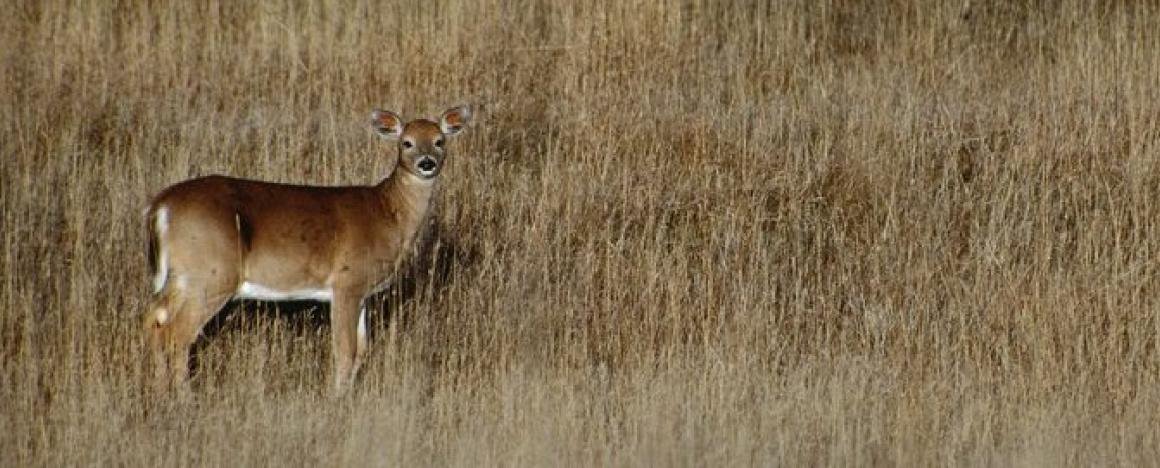Don’t Feed Deer in the Winter – Here’s Why

It is important to resist the urge to feed deer in the winter. Providing supplemental food for deer is not in their best interest, as their activity, movement, and feeding naturally decrease in the winter. Deer utilize their body fat and browse on natural available vegetation.
Changes in diet caused by the introduction of rich, unnatural foods during this season can cause disruption in the microorganisms of the digestive system. Even hay can cause problems in a digestive tract that has geared down for the winter. Supplemental feeding of deer may actually decrease its chance of survival. Encouraging deer to congregate in unusually high numbers at a feeding area makes them more vulnerable to predators and at risk for the spread of disease. Feeding deer is very often done in proximity to paved roads. This practice can increase deer traffic to the area and increase deer-vehicle collisions. Many states have made feeding deer illegal.
Land owners can learn more about the importance of providing suitable winter habitat for deer and other native wildlife by contacting their state wildlife agencies or conservation organization, such as like MassWildlife in Massachusetts.
More Resources
We have written and collected information regarding wildlife and wildlife issues you may encounter to help you better understand interacting and helping wildlife in your area.